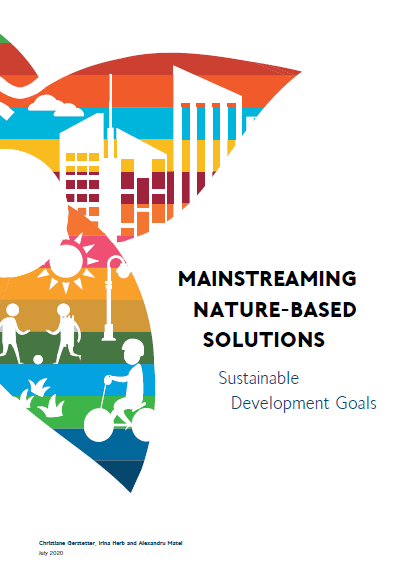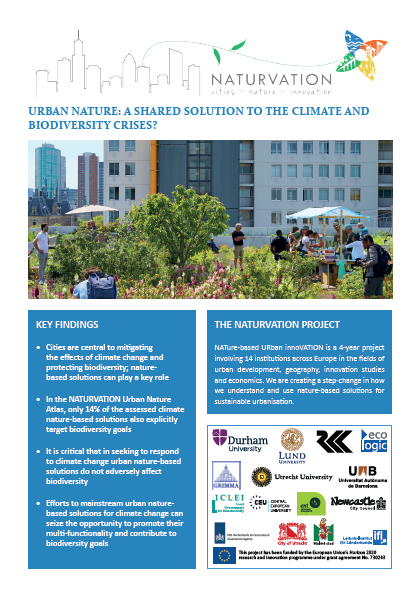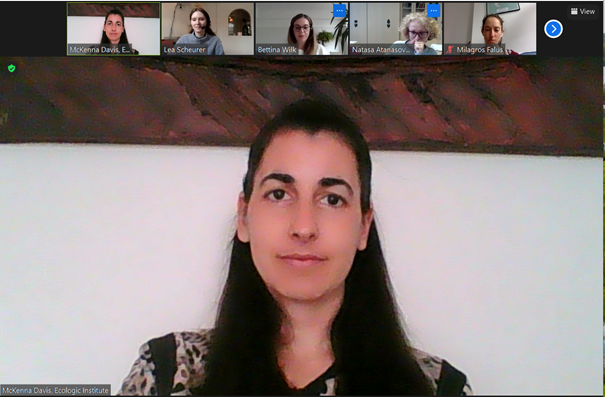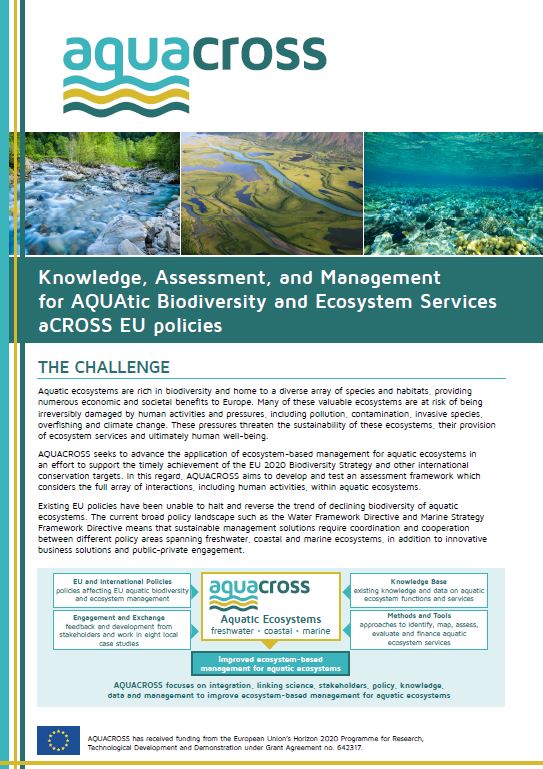Nature-based Solutions and Ecosystem-based Aquatic Biodiversity Management
- Presentation
- Date
-
-
- Location
- Sharm el Sheikh, Egypt
- Speech
-
Sandra Naumann
At the 2018 UN Biodiversity Conference, Ecologic Institute's Hugh McDonald and Sandra Naumann presented and discussed Ecologic work on nature-based solutions and managing aquatic biodiversity. The UN Biodiversity Conference (CBD COP 14) took place from 13 to 29 November 2018 in Sharm el-Sheikh (Egypt). Approximately 3,800 representatives from government, NGOs, indigenous groups, academia, business and civil society came together to discuss the theme "Investing in biodiversity for people and planet".
In relation to her work on nature-based solutions and green and blue infrastructure, for example in the NATURVATION project, Sandra Naumann was invited by the Commission to moderate the side event "Nature-based solutions: a tool to mainstream biodiversity?". The aim of the session was to identify, discuss and raise awareness of approaches to tap the full potential of nature-based solutions (NBS) for achieving a successful post-2020 global biodiversity strategy. The session highlighted opportunities and challenges to upscaling and mainstreaming NBS across different sectors, going beyond climate change adaptation and disaster risk reduction. Sandra Naumann also participated in the 4th Science Forum to discuss how science can foster the implementation of biodiversity policy up to 2020 and inform the post-2020 global biodiversity framework. She actively contributed to both events with insights, approaches and results from NATURVATION and other research projects.
Hugh McDonald presented results and useful tools from the AQUACROSS project. At an informal side-event featuring discussants from the EU Commission and IUCN, he introduced AQUACROSS case studies and also highlighted the forthcoming AQUACROSS ecosystem-based management cookbook, the AQUACROSS Information Platform, and the AQUACROSS AquaLinks tool, which have been developed to help managers protect aquatic biodiversity. AQUACROSS is a 3.5 year Horizon 2020 research project, led by Ecologic Institute that supports EU efforts to effectively, efficiently, and equitably manage biodiversity in Europe's lakes, rivers, coasts and oceans. Hugh McDonald also contributed to a side-event organised by the EU Commission on nature based solutions, and the 4th Science Forum, which sought scientist input to shape the post-2020 Biodiversity agenda.
Key messages from the discussion about the role of NBS in achieving a successful post-2020 global policy agenda are:
- NBS should be a key feature of the post-2020 global biodiversity framework. Specific actions are required to integrate NBS in the framework such as a dedicated target or promoting NBS as tool or approach for mainstreaming the biodiversity targets across all levels.
- NBS are a mainstreaming tool per se, as they benefit, and are based on, biodiversity, while also delivering multiple benefits for various sectors and wider society beyond nature conservation such as human health and well-being, climate change adaptation, sustainable land use, environmental justice or green economy. A dedicated action plan on mainstreaming NBS into the biodiversity and other policy agendas would be key to move forward.
- NBS strongly rely on healthy and biodiverse ecosystems to increase the resilience and sustainability of societies.
- The success of Nature Based Solutions relies on decision making that adequately captures their full economic, social, and environmental value. The AQUACROSS project and its case studies propose ecosystem-based management as a tool to do so.








